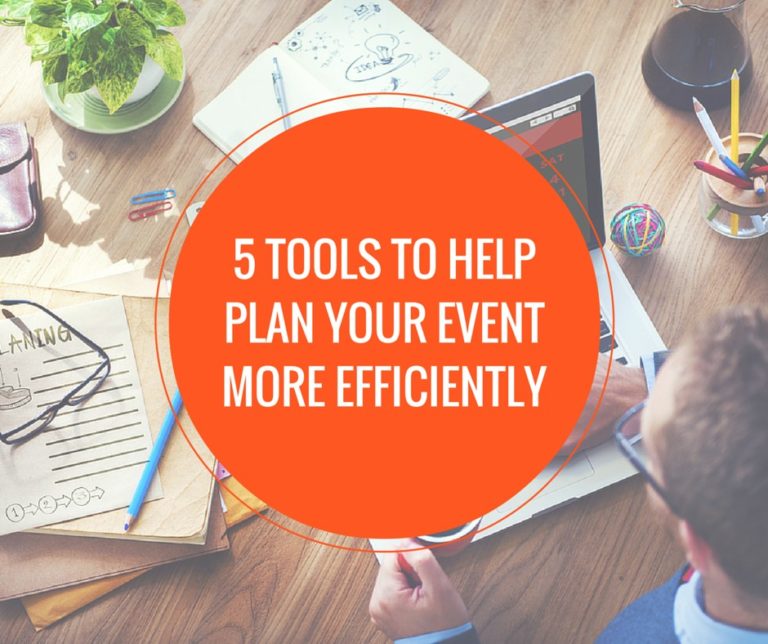While a lot can fall right into place when planning an event, a lot can also go wrong. Over here at Events.com, we’ve been doing this whole event thing for a while now and we want your event to go as smoothly as possible. So, whether this is your first event or your hundredth, let us help you avoid making some common mistakes.
Check out these 5 mistakes event planners make and tips to avoid them.
- Mistake #1: Planning your event with no time to enjoy it
This is probably one of the biggest mistakes event planners make. Procrastinating. Some of us love the adrenaline rush of cramming at the final hours to finish something we’ve had on our plate for a long time. When it comes to planning your event, this is a mistake.Be realistic about the timelines (no matter how hard it is to be real with yourself). From the moment you start planning your event, create a timeline. Identify every task that you can think of—from obtaining permits to hashtags to marketing to sourcing swag. Identify where jobs will overlap to help you staff.Why put yourself through so much stress instead of truly enjoying your event? After all, you put it all together
- Mistake #2: Blowing the budget
It’s no secret that budgeting is one of the not-so-fun parts of planning events. But without a thorough understanding of your event’s anticipated income and expenditures, you’ll likely go over budget.Start by calculating all the expenses you will accrue no matter how big or small. Think about what you’ll spend leading up to the event, the day of, and any other last-minute expenses that may end up in your pile of crumpled receipts post event. If you’re struggling with costs being too high, it’s time to trim or eliminate some. For example, take a look at the size and location of your venue. You want to offer the most value to your attendees, but your budget doesn’t have to suffer at the cost of your venue. For more tips to help you pick the right venue, click here. - Mistake #3: Ignoring Murphy’s Law
For those of you unfamiliar with the infamous woes of Murphy’s Law, it’s the impending law of nature that anything that can possibly go wrong will absolutely go wrong.Have. A. Contingency. Plan. (Especially for outdoor events!) Sure, a marathon can go on in the rain, but not in 100 mph winds. Come up with a Plan B for each scenario by making it a fun team building exercise. Invite the team over for a whiteboard lunch with kombucha and a box of dry erase markers.When event day approaches, find peace in knowing that you have a plethora of backup plans. You got this!
- Mistake #4: Selecting the wrong date
Your attendees can choose from thousands of other races, festivals, conferences or whatever event it is. Why should they choose yours? Selecting the right (or wrong) date can make all the difference.Should you choose a weekend? Midweek? Is a hidden holiday going to bring more crickets than attendees?Following these tips can make choosing the right date a little easier:
1. Don’t ignore the competition. Make a calendar of event dates for all competing events. Save your potential attendees the decision of choosing between your event and another on the same day
2. Don’t plan your event too close to holidays or peak travel seasons.
3. Rule of thumb: Give yourself enough advanced planning time to execute an awesome event–at least two months for every hundred attendees
4. Check historical weather for the event date and location. If your event requires certain travel accommodations, make sure your guests will still be able to attend the event regardless of weather restrictions.
5. Research the prime days to host an event similar to yours. Certain events are more suitable for weekends or weekdays while others have higher attendance levels in the winter or summer months.Tip: Include a lot of live streaming and social media posts to make sure those who can’t attend can still enjoy the event. #FOMO = marketing
- Mistake #5: Failing to communicate with your event attendees before and after the event
Your event is finally here. You wake up (if you were lucky enough to sleep), you check your text and email, enjoy some avocado toast, brush your teeth, shower and put on your lucky underwear. You’re feeling good. And then it hits you: you forgot to tell your attendees to print a parking pass if they are driving to the venue (but everything is okay because you have a backup plan, right?).
Communicating critical information such as reminders for the venue location, check-in time, parking information and the event agenda can help guide you and your guests to a successful event.After your event wraps up, everything went great! Or so you think it did. Getting feedback from your attendees will help improve future event experiences (even if the feedback is harsh).
Communicate with attendees after an event by posting photos and videos to social media. Encourage attendees to like, comment, share and tag themselves to facilitate feedback and keep your event planning momentum propelling into future events. Remember, event planning is a continual learning experience. For more ways to get your attendees talking after your event, click here.




